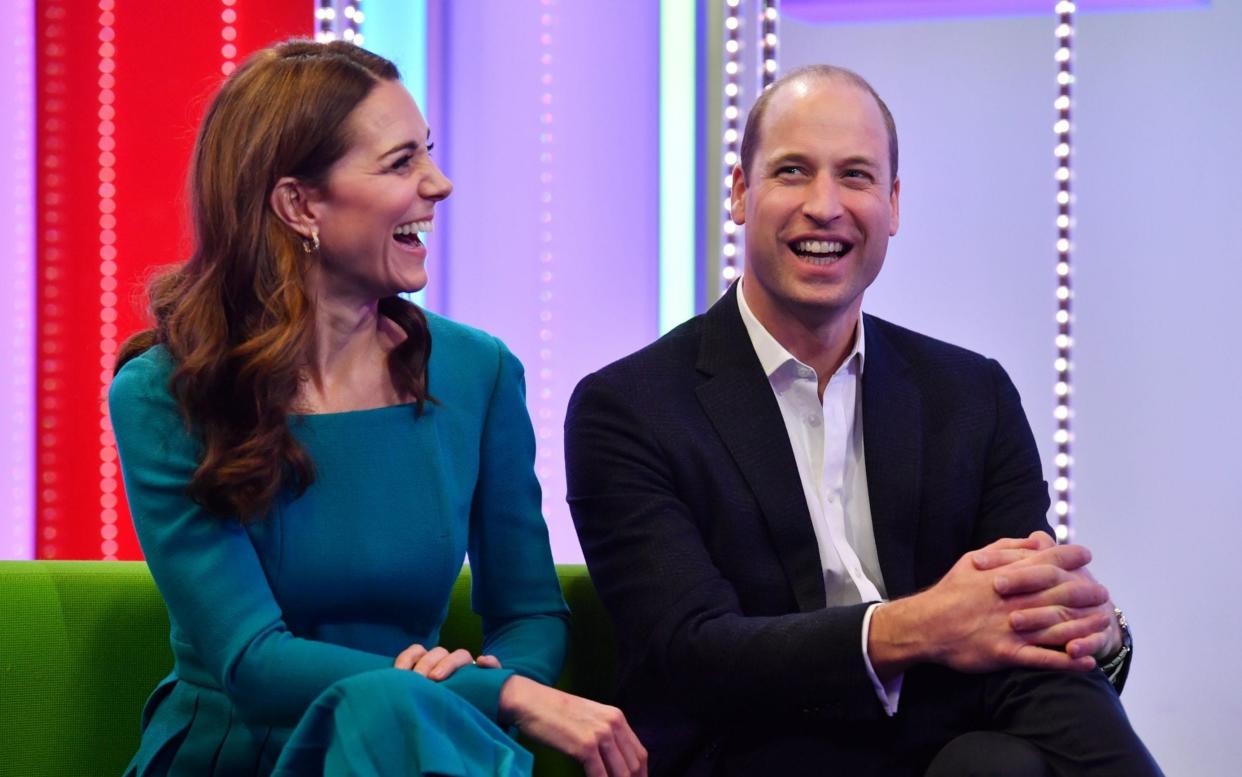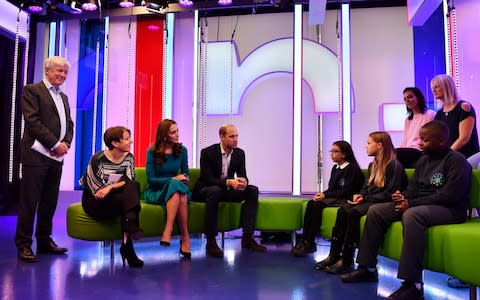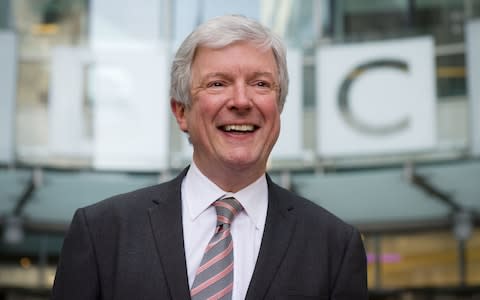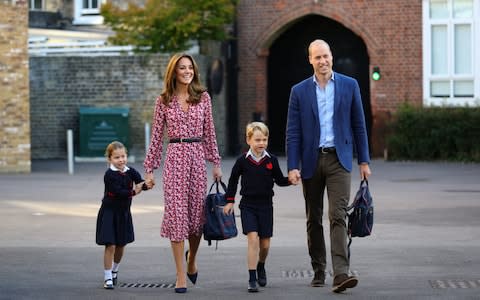Prince William backs anti-cyberbullying app which intervenes when children try to send nasty messages

The Duke of Cambridge has praised a new app to help children battle cyberbullying, hailing the “positive and practical” steps to stop young people sending or receiving nasty messages.
The BBC Own It app, which sends young users prompts to check whether they definitely want to send personal information or insults from their mobile phones, was developed by the corporation after the Duke assembled a “cyberbullying taskforce” to tackle the growing problem.
Launched today, it will allow children and teenagers to download a special keyboard which offers real-time interventions when they use certain words.
Hailing it, the Duke of Cambridge said : “It is fantastic the BBC has launched an app which will provide support to young people as they navigate the online world.
“I am delighted to see this positive and practical outcome resulting from The Royal Foundation Taskforce on the Prevention of Cyberbullying.”

He has also called it a “practical, powerful tool to help children use their smartphones and social media with confidence and with safety”, in a world where parents are increasingly concerned about social media use.
In a speech in November 2018, the Duke offered strong criticism of technology giants who had failed to take responsibility for the darker side of the internet, warning that “much of the early optimism and hope of social media is giving way to very real concern, and even fear about its impact on our lives”.
“I am worried though that our technology companies still have a great deal to learn about the responsibilities that come with their significant power,” he added.
“I am very concerned though that on every challenge they face – fake news, extremism, polarisation, hate speech, trolling, mental health, privacy, and bullying – our tech leaders seem to be on the back foot.”

The BBC Own It app, the first practical tool to come out of taskforce discussions, is now aimed at youngsters aged around nine to 13, who are getting their first smart phones.
The BBC said it would “offer help and support, giving advice if their behaviour strays outside safe and sensible norms” by responding to what its user is typing.
If it appears a child is about to share overly personal information, write something that could be seen as bullying, or appears to be in trouble, it will offer a pop-up message to check they are sure they want to press send and suggest advice.
It also has a diary function for recording their emotions.
A spokesman said it would help “build healthy online behaviours and habits” and “encourage young people to have open, honest and regular conversations with their parents about their online experiences”.

“Crucially, it won’t provide reports or feedback to parents and nothing the child types ever leaves their phone,” he added.
Alice Webb, director of BBC childrens and education, said: “The digital world is a fantastic place for people to learn and share, but we know many young people struggle to find a healthy online balance, especially when they get their first phones.
“Our Own It app gives them a helping hand as they navigate this new experience so that they can make the most of the time they spend on their phones whilst avoiding some of the pitfalls.
“We’re using cutting edge machine learning technology in a way no one has done before, putting help, support, assistance and a bit of fun too directly into young people’s hands at the moments when they need it most.”

